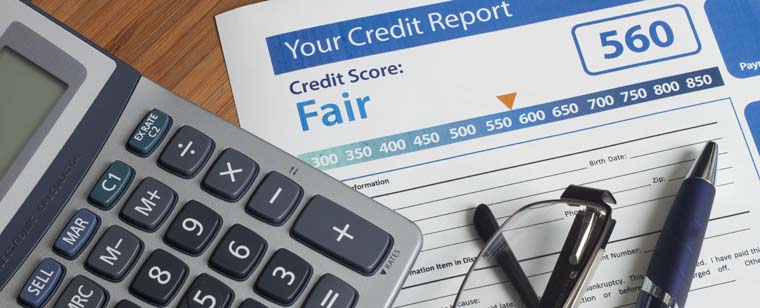Your Financial GPA
Grade Point Average, or GPA, is a concept most of us are familiar with from school. This magical number on a scale from 0.0 to 4.0 is used to show your current academic performance and predict future performance in a given class or subject.
Unfortunately, less familiar to many people is another number, your credit score, which reflects your credit performance over time. It is the key to your financial life and allows mortgage & auto loan lenders, credit card companies, landlords, cell-phone companies, and even prospective employers determine whether you are a good or bad financial risk and how likely you are to repay your loan. As important as this number is, a survey released in 2013 showed that approximately 40% of Americans still have a weak understanding of a credit score. So let’s cover the basics of what everyone should know about credit…
1) What is your score?
Your credit score, also called a FICO score, is a three-digit number, on a scale of 300 to 850, is determined from your credit report, which summarizes your financial risk. The median score is 720 and the higher your score the lower your risk and the better interest rate and terms you will be given. Those with scores below 600 are considered the riskiest customers and these scores result in credit denials or extremely high interest rates and poor credit terms.
2) What goes in to building your Credit Score?
Your score is calculated based on an assigned rating in five general categories:
- Payment History (35%) – how often do you pay your bills (think rent, utilities, credit cards) on time?
- Total Debt (30%) – how much credit do you have, how much have you used and how much is still available?
- Length of Credit History (15%) – I am over simplifying it here, but the longer credit history a person has, the better.
- New accounts or credit inquiries (10%) – every time you apply for, or receive, a new credit card, your credit score is impacted.
- Credit Mix (10%) – a variety of credit types have a positive impact on credit scores.
3) Responsible Credit Use
Here are a few tips for building a solid credit history and positively impacting your credit (FICO) score:
- Don’t charge more than you can afford to pay in full
- Pay all of your bills ON time EVERY time!
- Review your credit report for accuracy before opening a new account. Everyone is entitled to a free report once a year and many can contain errors that can have a negative impact on your score.
- Keep credit use at a minimum – if you have a credit card with a $3,000 limit don’t use more than 10-30% of that to have a positive impact on your credit history (and keep yourself from getting in over your head in debt)
- Not all credit cards are created equally – research the right one for you before applying for a card on a site such as www.creditcard.com or www.bankrate.com.
- Don’t apply for a lot of credit in a short period of time and do not close unused accounts
- Maintain a checking or savings account because even though this activity isn’t reported many lenders may inquire about such accounts on loan applications. Plus it may be key to you obtaining your first credit card – your bank where you have an account may be a good option for a first credit card, often secured by an existing account.
- Create a budget, review it regularly and stick to it! Knowing your regular expenses and income will help you become a financially responsible person who can make credit work FOR you through the different stages of adulthood.
Do not be scared of credit and do not run away, or try to “hide” from credit problems – if you need help contact your creditors or a credit counselor for guidance. Credit can and should be used wisely and if you find yourself with a poor credit score it is definitely possible to repair it, bring up your score and obtain your financial goals.
www.approvedbyhud.org/creditessentials
www.annualcreditreport.com
www.creditcard.com


Leave a Reply